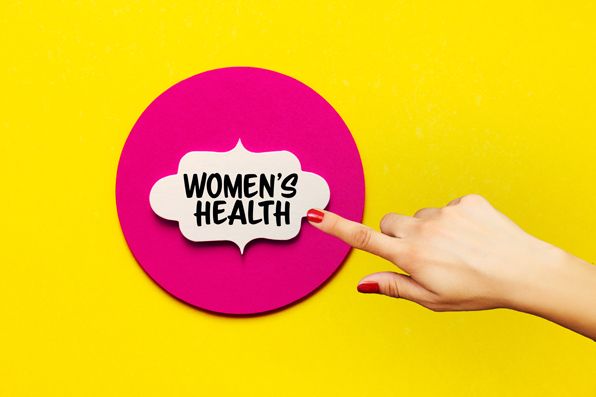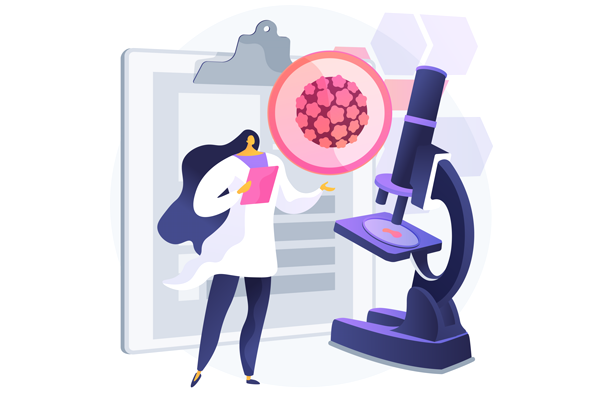Women’s health after 40 – it’s a crucial topic that too often goes unmentioned. Not least because women in their 40s are often so busy looking after others, whether in the office or at home. So how does a woman’s body change after 40 and what are the most common health issues in your 40s to look out for? Let’s take a look.
Perimenopause and hormonal changes
Dr Albert Aka, Consultant Gynaecologist at The Gynae Centre and expert on women’s health says: “The hormone shifts that tend to happen in a woman’s 40s can impact so many other areas of women’s health – far beyond menstrual cycles and mood swings. For example, a decline in oestrogen levels increases a woman’s risk for bone problems such as osteoporosis.”
Perimenopause is the name for the time leading up to the menopause (menopause is defined as the absence of menstruation for a year). Perimenopause most often begins in a woman’s forties. During this time, levels of hormones such as oestrogen, testosterone and progesterone are declining, which for many women creates symptoms that can really impact quality of life. You might notice:
- More UTIs (urinary tract infections). This is due to urethral thinning because of low oestrogen
- Vaginal dryness and/or itching
- Pain during sexual intercourse because of vaginal dryness (again due to lower oestrogen levels)
- Irregular menstruation
- Heavy bleeding
- Disturbed sleep
- Hot flashes
- Headaches
- Mood swings
- Depression
- Anxiety
- Problems with memory and concentration
- Exhaustion
- Lower libido
- Dizziness
- Racing heart and palpitations
- Aching muscles
- Dry, itchy skin
- High blood pressure
- Spotting between periods
If you’re concerned about hormonal shifts there are a number of things you can do, including lifestyle adjustments such as:
- Exercise
- Reducing your alcohol and caffeine intake
- Stress management techniques such as yoga or meditation
- Tweaking your nutrition – for example eating plenty of fruit and vegetables and oily fish
- Taking vitamin D or trying other ‘hormone balance’ supplements
But if you find that the symptoms of hormonal changes are significantly impacting your quality of life, then you may wish to look into hormone replacement therapy (HRT) because nothing beats it in effectiveness. Many women find that replacing the diminished hormones resolves many or all of the associated health issues and symptoms upending their quality of life – from better sleep to stronger bones.
What is involved in hormone replacement therapy? It really depends, because proper care will be shaped around you as an individual. For example, here at The Gynae Centre, if you are concerned about potential side effects associated with systemic progesterone exposure we can deliver hormone supplementation via Mirena Coil. If you’re bothered by a lowered libido, we can provide testosterone implants or patches. Good care is tailored specifically to you. To find out more you can book an appointment with a consultant at The Gynae Centre.
Increased risk of female cancers such as breast cancer and ovarian cancer
It’s a harsh reality of women’s health that the risk for breast cancer rises significantly from ages 30 to 40. Of course, environmental and lifestyle factors play their part too, but when it comes to any cancer, age is the biggest risk factor and early detection is key. With that in mind, it’s important to check your breasts for lumps frequently, and a very good idea to schedule a well woman check for peace of mind.
The risk for ovarian cancer also goes up as a woman gets older and it isn’t identified in a normal cervical smear test. If you experience any of the following symptoms for longer than a few weeks it’s important to see a doctor or gynaecologist swiftly:
- Swelling of the abdomen
- Unexplained weight loss
- Abdominal pain
- Problems with your digestion such as bloating, loss of appetite and wind
- Frequent need to urinate
With any cancer, early detection is key. This is why it’s a good idea to invest in regular women’s health checks including a pelvic examination and breast exam. And of course, don’t miss your smear tests.
Sexually Transmitted Infections (STIs) – yes really
It’s common to think of STIs being the preserve of the young and indeed most sexual health adverts tend to target people in their late teens and twenties. But in fact, STIs among older people are going up – particularly among the over-50s. People tend to think it won’t affect them in their forties and often don’t mention sexual health to their doctors but – particularly if you’re dating – it’s important to get tested, use protection, and talk about sexual health in any new relationship if you’re thinking about stopping using condoms.
In addition, the drop in oestrogen in a woman’s forties can thin the walls of the vagina and create vaginal dryness, making friction and minor cuts more likely – this in turn can make a woman more susceptible to catching an STI. So be protective and proactive, women’s health still includes sexual health in your forties.
Overactive bladder
As we get older, the bladder muscles can get thicker and less effective, and the nerves that help govern the bladder might not function as well. But vaginal oestrogen cream and other medicines can help and Kegel exercises may be useful too.
Accidental pregnancy
Yes, women’s health after 40 will still mean family planning considerations for many. Often people assume that when women reach their 40s they don’t need to use birth control. But each woman is unique and there is no single cut off age when a woman can’t fall pregnant – so don’t assume. And obviously having a baby in your 40s comes with extra risks to mother and baby, so that’s something to consider too.
Osteoporosis
Osteoporosis, the weakening of bones and loss of bone density, is largely a women’s health issue. It most often occurs as a woman’s body is producing less and less oestrogen, which is imperative for bone health. In your 40s, it can help to eat well with plenty of vegetables, oily fish and phytoestrogen-rich foods such as tofu, and further take care of yourself by getting plenty of vitamin D and low-impact exercise. Many women also find it helpful to look into hormone replacement therapy too, as substituting the lost oestrogen can help preserve bone health.
Vaginal health and Urinary Tract Infections (UTIs)
After 40, hormonal changes frequently lead to thinning of the walls of the vagina and shifts in vaginal pH, which can create discomfort during sex, vaginal dryness and urinary tract infections. While problems like UTIs are treated with antibiotics, women’s health after 40 should include prevention efforts. This may mean trying self-help hormone strategies such as diet adjustment, a vagina-friendly probiotic, drinking plenty of water and urinating before and following sex, or replacing lost oestrogen with hormone replacement therapy.
Noticing changes in your 40s? The Gynae Centre can help. From all-round hormone balancing to pelvic care and women’s health screenings, we’ve helped countless women better navigate the changes of their 40s.
To find out how we can help, call us on 020 7580 8090 or book online.






